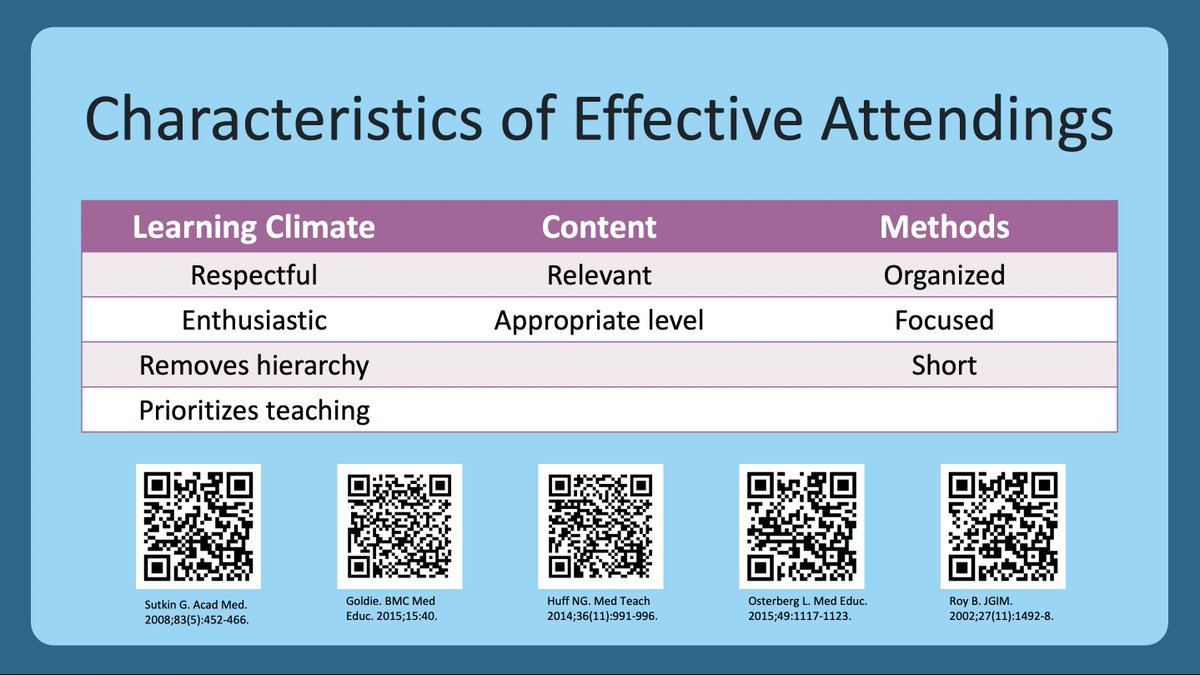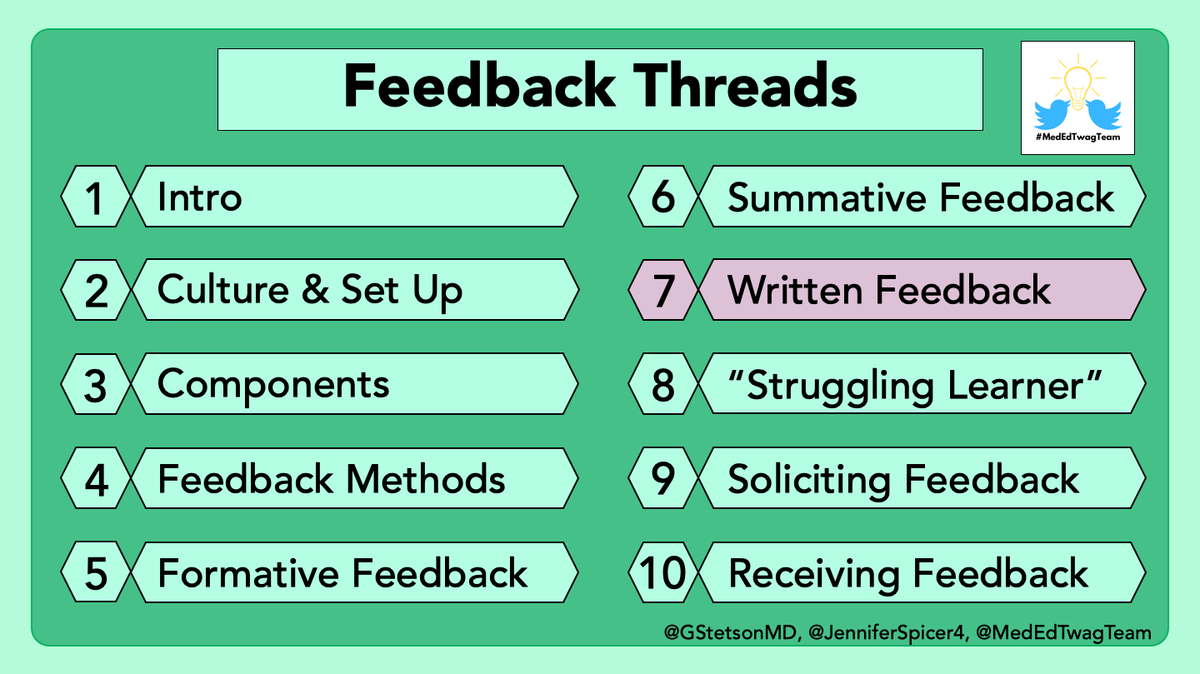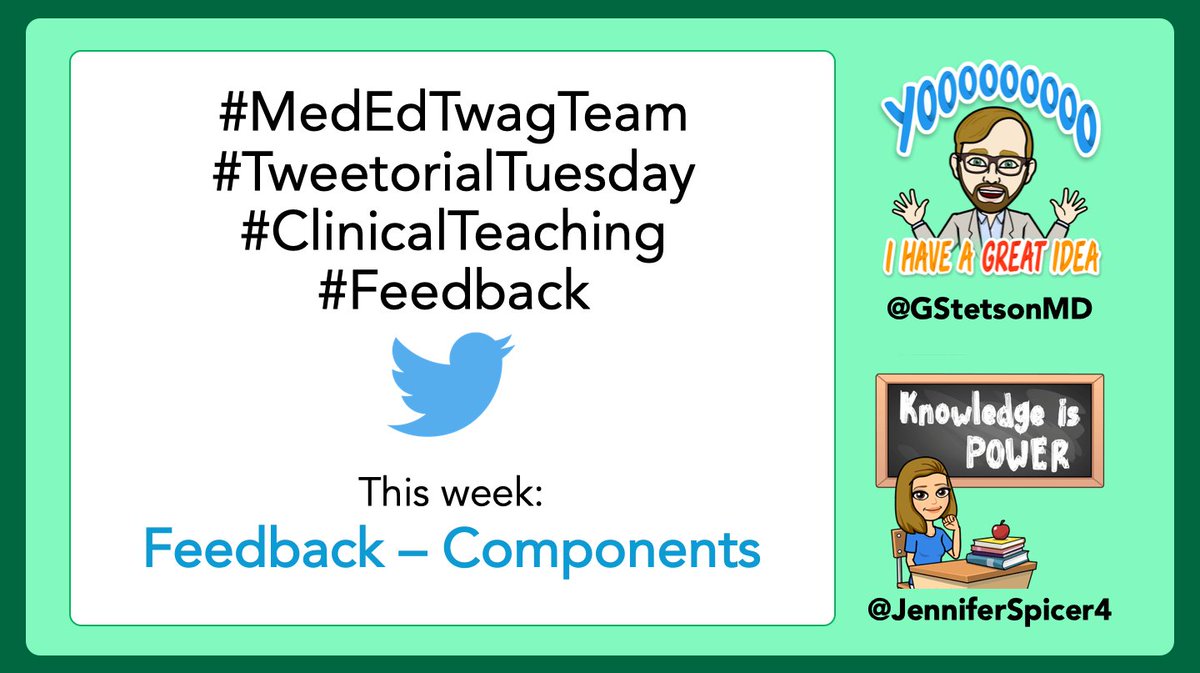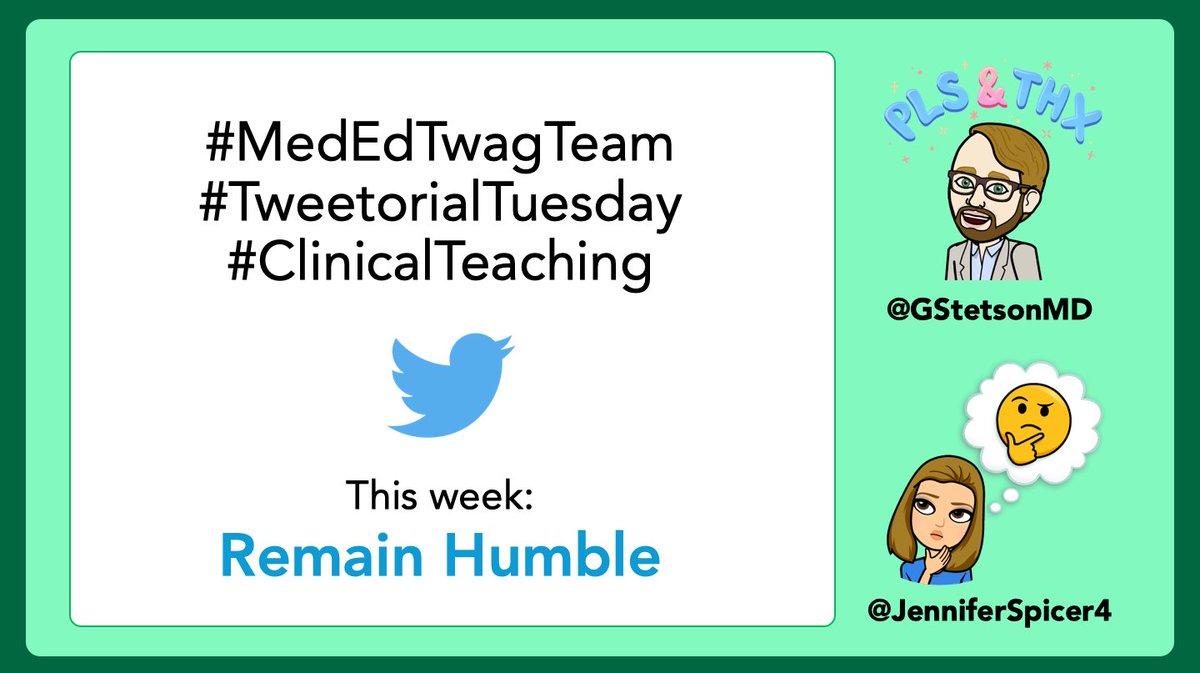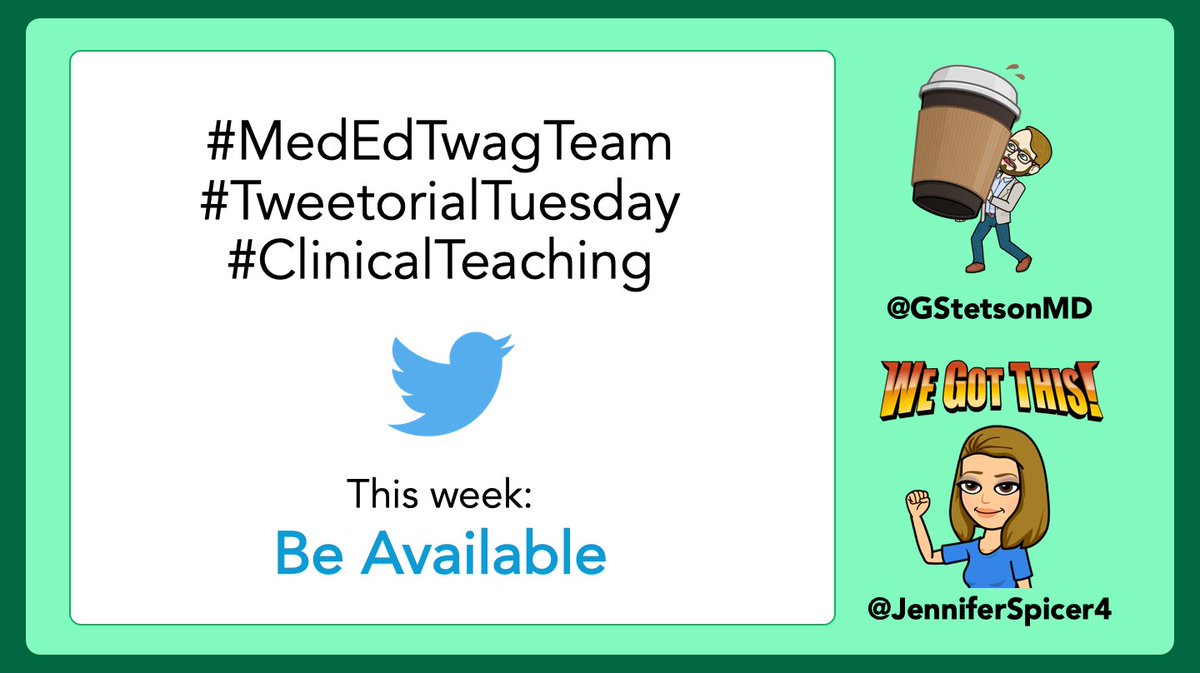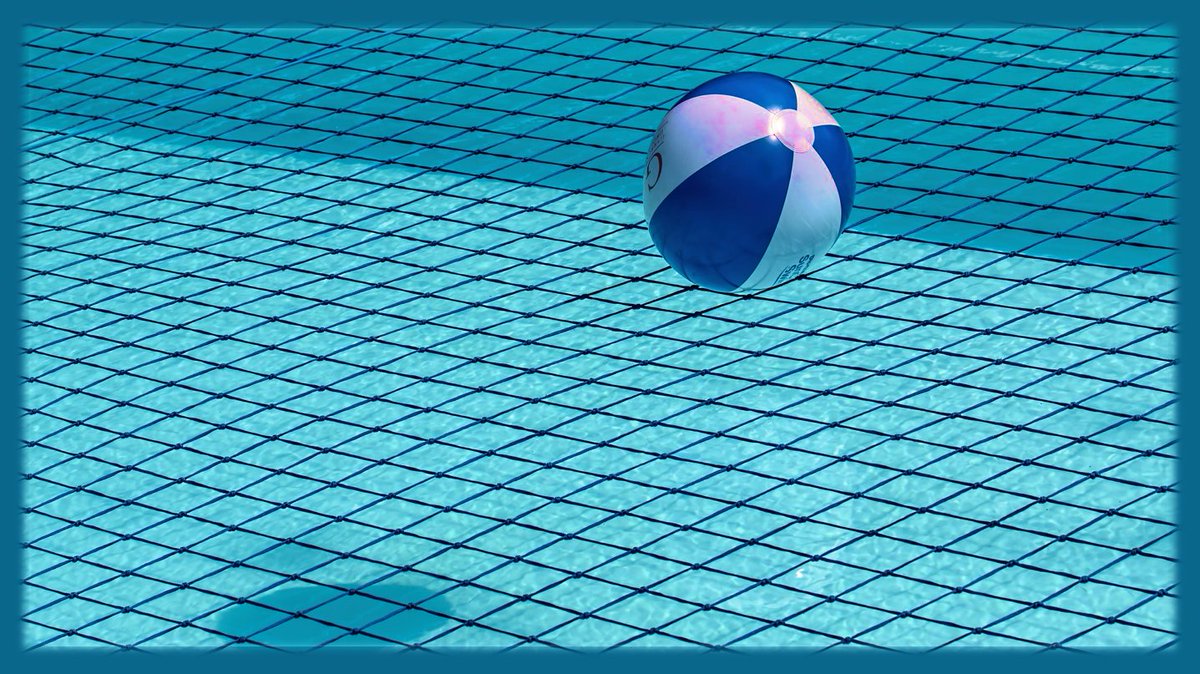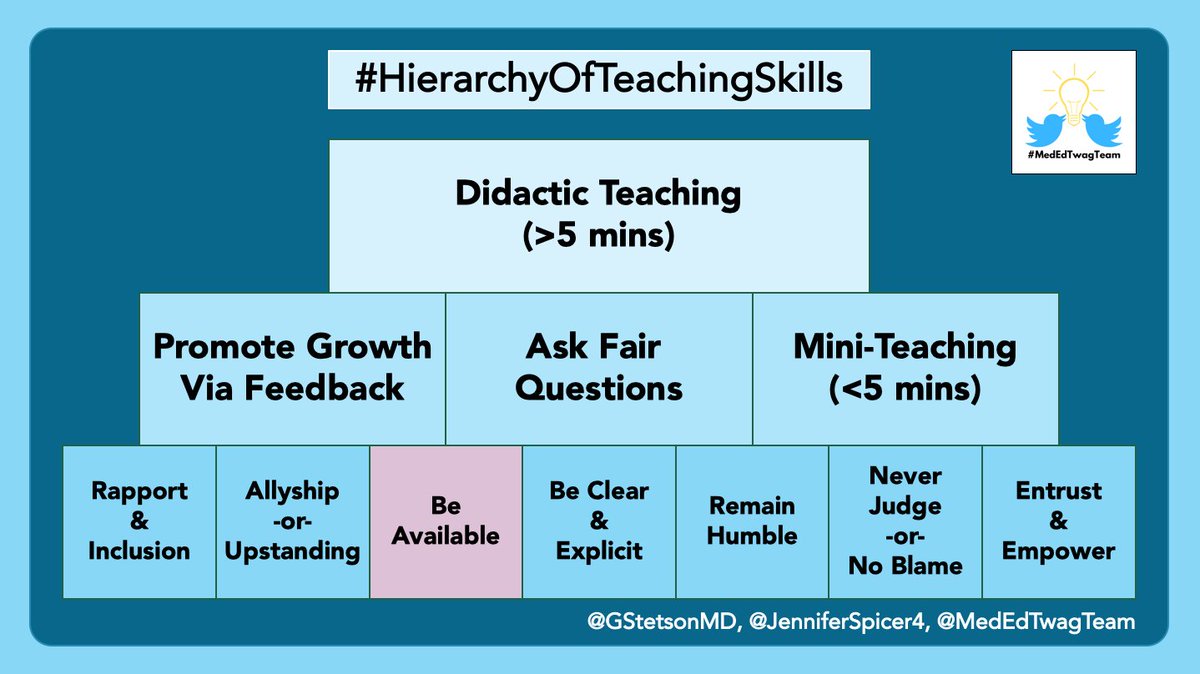
1/ #MedTwitter #MedEd
Welcome to our new @MedEdTwagTeam #TweetorialTuesday series on #InpatientTeaching.
We will spend several months exploring how we can improve clinical teaching focusing on the inpatient setting (where @GStetsonMD & myself do most of our teaching).
Welcome to our new @MedEdTwagTeam #TweetorialTuesday series on #InpatientTeaching.
We will spend several months exploring how we can improve clinical teaching focusing on the inpatient setting (where @GStetsonMD & myself do most of our teaching).

2/ So, first, let’s start out by defining what makes a good clinical teacher.
Lucky for us, this great article in @AcademicMedicine reviewed 68 articles on the topic published through 2006.
journals.lww.com/academicmedici…
Lucky for us, this great article in @AcademicMedicine reviewed 68 articles on the topic published through 2006.
journals.lww.com/academicmedici…
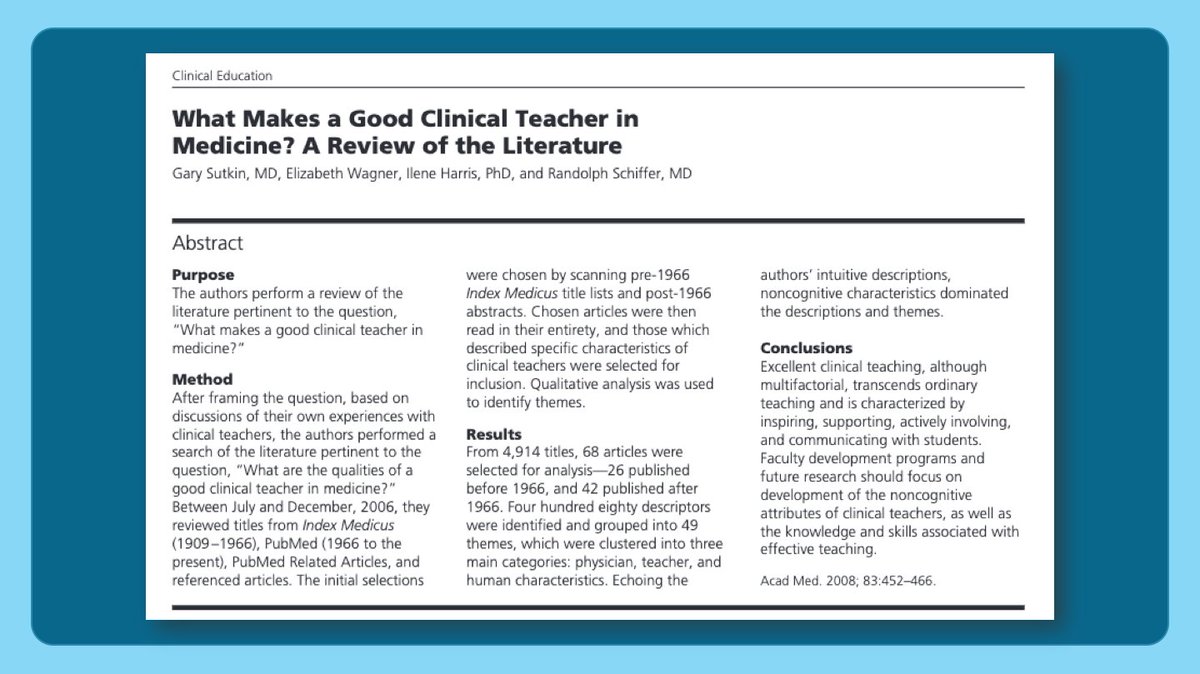
3/ The article has an appendix that lists characteristics in 3 categories, which I have summarized as:
1⃣ personal attributes
2⃣ clinical abilities
3⃣ teaching practices
1⃣ personal attributes
2⃣ clinical abilities
3⃣ teaching practices

4/ Here are the personal attributes identified in other articles.
One of my key takeaways: a good clinical teacher is a ROLE MODEL with humility and openness to alternate perspectives.
One of my key takeaways: a good clinical teacher is a ROLE MODEL with humility and openness to alternate perspectives.

5/ Here is a list of clinical abilities thought to be important.
Unsurprisingly, both knowledge and cognitive/non-cognitive skills are listed.
However, *ability to accept uncertainty* is an important characteristic that was mentioned that we don’t always emphasize.
Unsurprisingly, both knowledge and cognitive/non-cognitive skills are listed.
However, *ability to accept uncertainty* is an important characteristic that was mentioned that we don’t always emphasize.
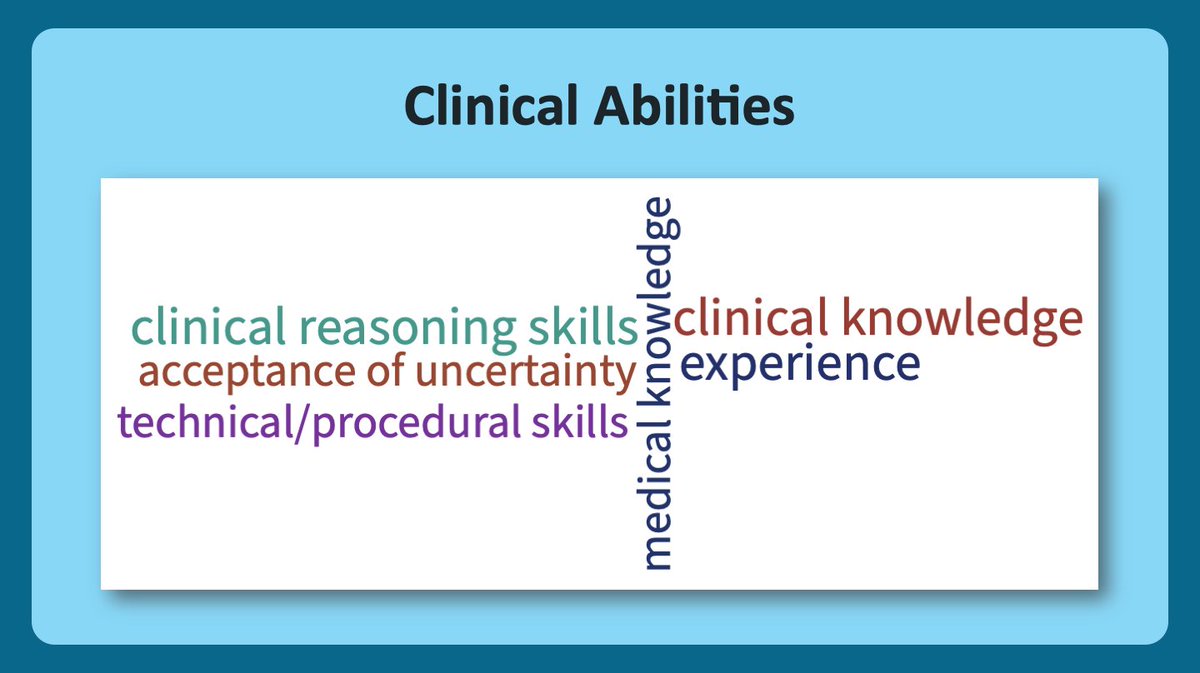
6/ And finally, the teaching practices.
We have already created series for 3 of these:
1⃣Answering questions effectively
2⃣Building supportive relationships
3⃣Providing feedback
We will cover these & more in this series.
Check out @MedEdTwagTeam for our previous threads!
We have already created series for 3 of these:
1⃣Answering questions effectively
2⃣Building supportive relationships
3⃣Providing feedback
We will cover these & more in this series.
Check out @MedEdTwagTeam for our previous threads!
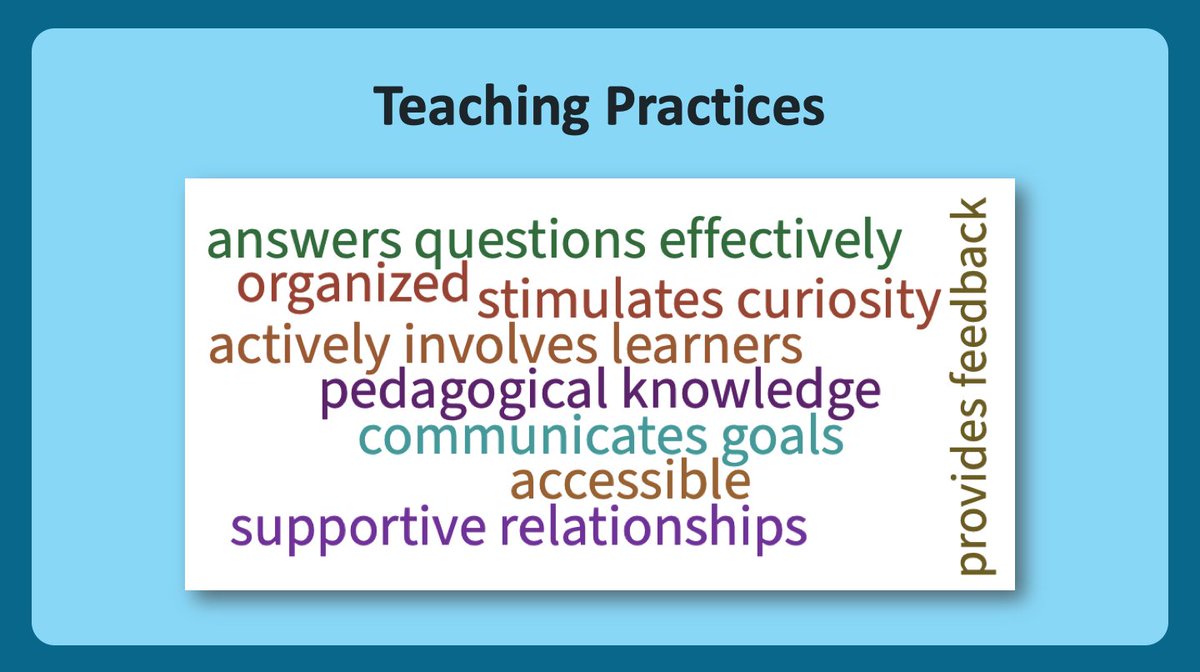
7/ There’s lots of stuff that we need to teach in the inpatient setting, and they can be divided into 3 categories: knowledge, skills, & attitudes.
This is not a comprehensive list, but it includes some things that I try to teach when I’m on clinical service.
This is not a comprehensive list, but it includes some things that I try to teach when I’m on clinical service.

8/ We have many options regarding how to teach in the clinical setting:
✅asking questions
✅chalk talks
✅discussion
✅demonstration
✅role play
✅observation & feedback
✅and many, many more
✅asking questions
✅chalk talks
✅discussion
✅demonstration
✅role play
✅observation & feedback
✅and many, many more
9/ Some options are better used to teach knowledge vs skills vs attitudes - see some of the examples below.
In this series, we hope to expose you to many different ways to teach while appropriately matching your objectives with your educational strategies.
In this series, we hope to expose you to many different ways to teach while appropriately matching your objectives with your educational strategies.

10/ In this series, we will first cover foundational principles, then discuss opportunities to teach during the day: before rounds, during rounds, after rounds, & after hours.
Using this framework, we will provide practical tips that you can immediately apply to your practice.
Using this framework, we will provide practical tips that you can immediately apply to your practice.

11/ So tell us, what are you excited to learn about?
Tune in next week (8/24/2021) when @JenniferSpicer4 will share the first thread on “Preparing for Teaching”
Tune in next week (8/24/2021) when @JenniferSpicer4 will share the first thread on “Preparing for Teaching”
• • •
Missing some Tweet in this thread? You can try to
force a refresh




